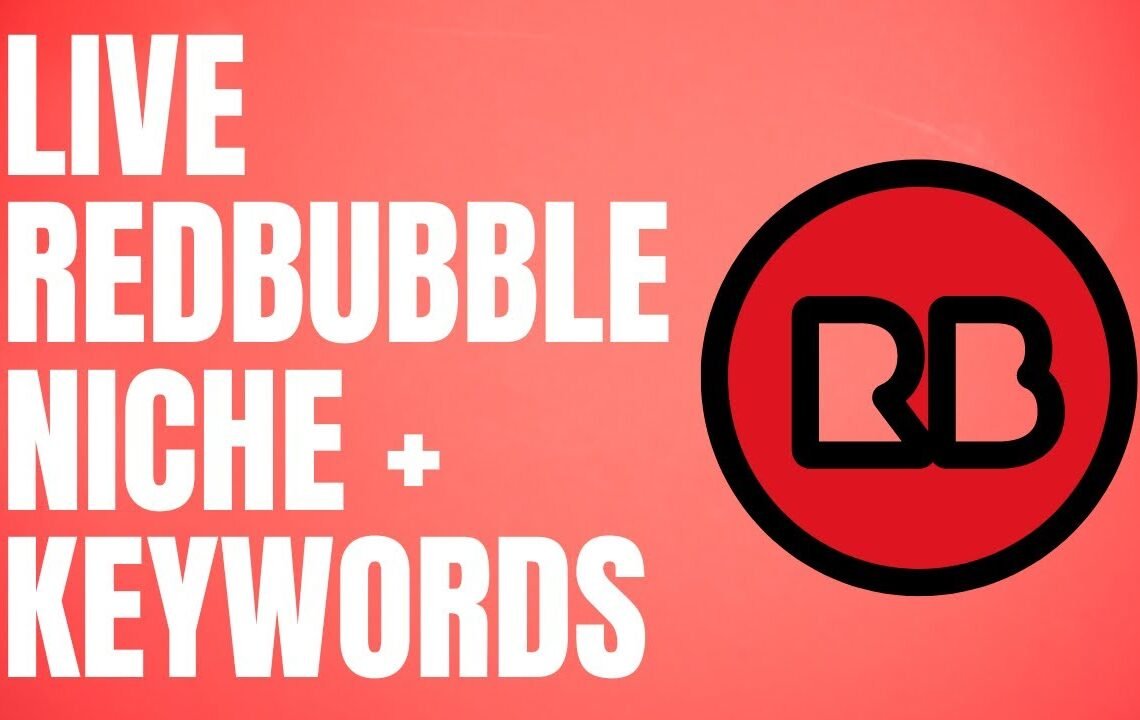Researching niches and finding low competition keywords | Redbubble #redbubble

Are you struggling to find success on Redbubble because you’re targeting saturated niches and competitive keywords? If so, you’re not alone. Many artists and designers face this challenge when trying to make a name for themselves on the platform. The key to standing out and gaining traction on Redbubble is to research niches and find low competition keywords. By doing so, you can increase the visibility of your work and increase your chances of making sales. In this blog, we’ll explore the importance of researching niches and provide some tips for finding low competition keywords on Redbubble.
Researching Niches and Finding Low Competition Keywords on Redbubble
When it comes to selling art and designs on Redbubble, researching niches and finding low competition keywords is essential for driving traffic and increasing sales. Redbubble is a popular platform for independent artists to sell their work, and by strategically targeting niche audiences and utilizing low competition keywords, artists can increase their visibility and reach a wider audience.
Understanding Your Target Audience
Before diving into keyword research, it’s important to understand the target audience for your art and designs. Identify who would be interested in your work and what niches or communities they are a part of. Understanding your target audience will help you tailor your keywords to reach the right people.
Utilizing Redbubble Tags
Redbubble allows artists to tag their work with relevant keywords and phrases. These tags help categorize your work and make it more discoverable to potential buyers. When researching niches and keywords, consider the tags that are commonly used within those communities and incorporate them into your listings.
Researching Niches
Researching niches involves identifying specific areas of interest or subcultures that are aligned with your art and designs. By targeting niche audiences, you can reach a dedicated group of individuals who are more likely to appreciate and purchase your work. When researching niches, consider the following:
Identifying Trends and Themes
Look for trends and themes within the art and design world. Are there emerging styles or subjects that are gaining popularity? Researching current trends can help you identify niche opportunities that are in demand.
Exploring Subcultures and Communities
Subcultures and communities often have dedicated followings that are passionate about specific interests. By exploring these subcultures, you can uncover niche opportunities to create art and designs that resonate with these audiences.
Finding Low Competition Keywords
Once you have identified your target niches, it’s time to find low competition keywords that will help your work stand out in search results. Low competition keywords are phrases that have less competition, making it easier for your work to rank higher in search engines.
Using Keyword Research Tools
There are a variety of keyword research tools available that can help you identify low competition keywords. Tools like Google Keyword Planner, SEMrush, and Ahrefs can provide valuable insights into search volume and competition for specific keywords.
Long-Tail Keywords
Long-tail keywords are specific, niche phrases that are more targeted and have less competition. For example, instead of targeting “flower art,” you might use a long-tail keyword like “vintage floral watercolor prints.” By using long-tail keywords, you can attract more qualified traffic to your listings.
Optimizing Your Redbubble Listings
Once you have identified your niches and low competition keywords, it’s time to optimize your Redbubble listings. Incorporate your chosen keywords into your product titles, descriptions, and tags to improve your visibility in search results.
Creating Compelling Descriptions
Use your low competition keywords naturally within your product descriptions to provide valuable information to potential buyers while also improving your search ranking. Avoid keyword stuffing, and focus on creating compelling and informative descriptions that resonate with your target audience.
Monitoring and Refining
Keyword research and optimization is an ongoing process. Keep an eye on the performance of your listings and adjust your keyword strategies as needed. By monitoring and refining your approach, you can continue to improve the visibility and success of your Redbubble shop.
By researching niches and finding low competition keywords, artists can optimize their Redbubble listings to reach the right audience and increase sales. Understanding your target audience, exploring niche opportunities, and utilizing low competition keywords are essential strategies for success on Redbubble.
FAQ – Researching Niches and Finding Low Competition Keywords on Redbubble
-
What is niche research?
Niche research involves identifying specific segments of the market that have potential for growth and profitability. It helps you understand the needs and preferences of a particular group of people so you can create products or services that cater to them.
-
How can I research niches on Redbubble?
You can research niches on Redbubble by using its search function to look for popular and trending designs. You can also use third-party tools like Google Trends to identify popular topics and keywords that are currently in demand.
-
What are low competition keywords?
Low competition keywords are phrases or terms that have relatively low competition from other sellers or creators. Using these keywords can help you stand out in search results and attract more potential customers.
-
How can I find low competition keywords on Redbubble?
You can find low competition keywords on Redbubble by using keyword research tools like SEMrush or Ahrefs to see which keywords have lower search volume and competition. You can also analyze the performance of similar products and see which keywords are driving traffic and sales.
I hope you find useful my article Researching niches and finding low competition keywords | Redbubble #redbubble, I also recommend you to read my other posts in my blog.
If you need help with anything join the community or do not hesitate to contact me.
Please consider joining my newsletter or following me on social media if you like my content.


Leave a Reply